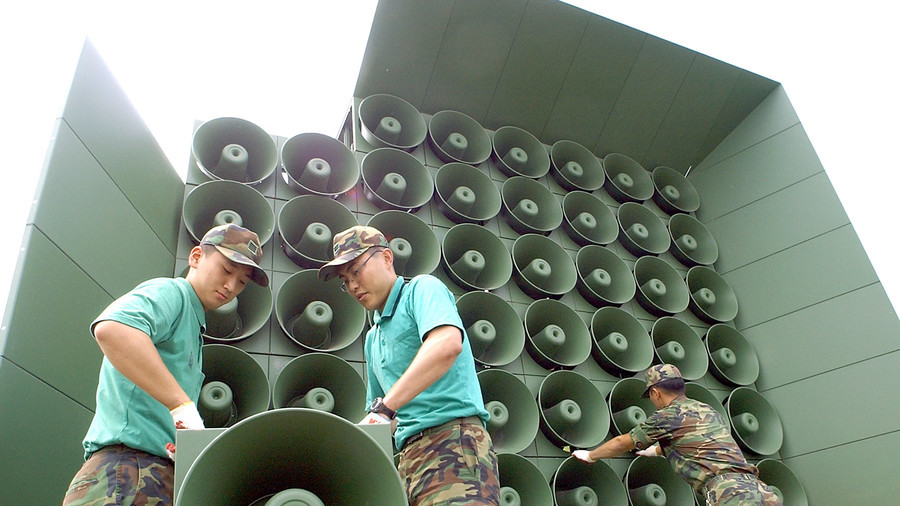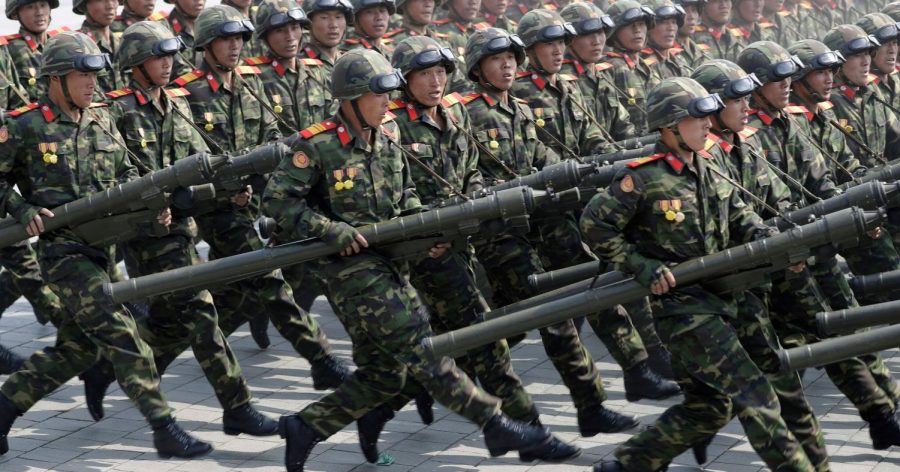The Korean Conflict in 400 words
Though President Moon of South Korea and North Korean Dictator Kim Jong Un have made strides towards peace, the Korean people are still in a civil war, and have been for almost 70 years.
May 7, 2018

Following the expulsion of Imperial Japanese forces from the Korean Peninsula during WWII, two separate Korean nations formed, with communist guerrillas under the command of Kim Il-Sung settling in the North (Democratic People’s Republic of Korea, or DPRK), while democratic South Korea (Republic of Korea, or RoK) formed under the watchful eye of the United Nations. 5 years after his nation was established by the Soviet Union, Kim Il-Sung launched an invasion of their Southern neighbors, prompting the United States to intervene on their allies’ behalf. Though the communists initially outmatched and outnumbered their opponents, American landings at Inchon turned the tide of the war in the RoK’s favor. Seoul was liberated, Pyongyang was captured, and the North Korean Army was in full retreat. Despite MacArthur’s wishes, no action was taken to prevent China or the Soviet Union from intervening. Soon enough, Chinese infantry stormed across the border with Soviet jets screaming overhead, pushing UN forces back. Fighting stalled around the 38th parallel in 1953, and an Armistice was signed declaring an (at least on paper) end of hostilities between the two Koreas until a more permanent solution could be reached.

Several incidents have occurred since ’53, with Americans, North Koreans, and South Koreans becoming casualties over the course of 60-something years, including about 3 years of skirmishes across the border (66-69), an attempted assassination of the South Korean president (68) and the infamous Hatchet Incident; the murder of two American officers for attempting to cut down a tree in the Joint Security Area. It should be noted that South Korea’s president, Moon Jae-In, was involved in the retaliation: Operation Paul Bunyan. South Korea has, until recently, blared K-Pop music across the border (I don’t know about you, but that’s enough provocation to nuke Seoul in my book).

This animosity seems to have reversed overnight, with the Panmunjom Declaration stating that the two Koreas will work together to reunite, possibly ending one of the longest conflicts in the modern era. We’ll just have to wait and see how this goes, though I doubt that peace will come as easily as they would like to think.


